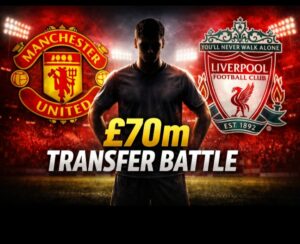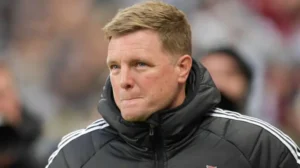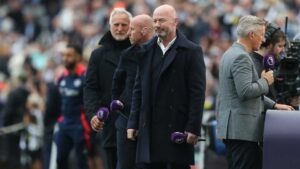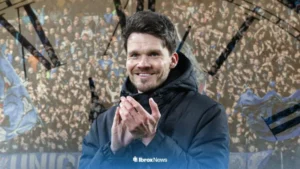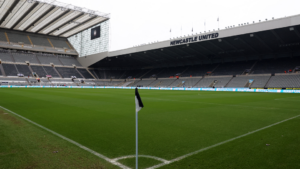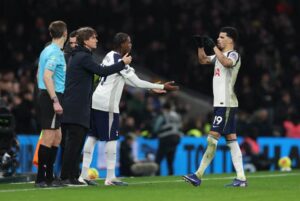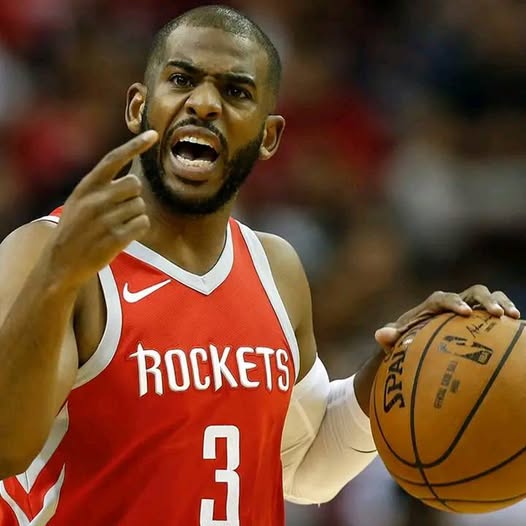
In an era when NBA superstars are not only athletes but global icons, LeBron James continues to reign supreme. At 40 years old, the four-time NBA champion and all-time leading scorer just earned another All-NBA honor, proving yet again that greatness doesn’t fade with age—it adapts, evolves, and endures. But with elite performance comes elite compensation: a staggering $54 million salary for the 2025–26 season.
While few would argue that LeBron hasn’t earned every dollar of his paycheck, the implications for the Los Angeles Lakers are increasingly complex. As the franchise stares down a payroll nearing $200 million, a harsh reality is setting in: LeBron’s well-deserved salary may be both a badge of honor and a barrier to contention.
First, let’s set the record straight—LeBron James is still a top-10 player in the NBA. Averaging elite numbers well into his fourth decade, he’s defying every notion of athletic aging. His court vision, basketball IQ, and ability to shift the flow of any game remain unmatched.
This past season, despite battling injuries and inconsistent roster help, LeBron averaged 25 points, 7.9 assists, and 7.1 rebounds per game while shooting efficiently from all areas on the court. He remains the heartbeat of the Lakers, and his All-NBA selection is both a testament to his skill and his irreplaceable impact on the franchise.
From a marketing perspective, his value might even exceed $54 million. LeBron puts fans in seats, eyes on screens, and brands in front of massive audiences. His presence lifts the Lakers as a global brand and remains one of the few sure bets in sports.
Yet even the king’s court has budget limits. The NBA’s salary cap system, designed to promote parity, doesn’t spare legends. As the Lakers prepare for the 2025-26 season with nearly $200 million already committed, LeBron’s salary—however deserved—represents a major portion of a financially inflexible roster.
The Lakers’ cap sheet is loaded. Between LeBron’s $54 million, Anthony Davis’s $43 million, and D’Angelo Russell’s potential player option (or a similar mid-tier contract replacement), LA has little wiggle room. Add in the contracts of younger players like Austin Reaves and Rui Hachimura, and suddenly the payroll becomes bloated with minimal means for roster improvement.
Their tools for building around LeBron and AD? The taxpayer mid-level exception—expected to be around $7 million—and veteran minimum contracts. That’s the extent of their arsenal in chasing championship pieces, a stark contrast from the roster overhaul they need after being eliminated in the first round by the upstart Minnesota Timberwolves.
Paying $54 million to a 40-year-old superstar isn’t inherently problematic—it’s what LeBron brings that warrants that sum. The challenge lies in what can’t be done with the money tied up. Every dollar paid to LeBron is a dollar unavailable to sign emerging talent, deepen the bench, or secure a third star.
Worse yet, LeBron’s presence on the roster tends to skew the Lakers’ focus toward the short term. Every move is made in the shadow of his career timeline. That means mortgaging the future—young talent, draft picks, developmental opportunities—in favor of immediate returns.
It’s a high-risk gamble that already seems to be paying diminishing returns. Since winning the 2020 title in the Orlando bubble, the Lakers have had three underwhelming playoff exits and one missed postseason entirely. Their supporting casts have ranged from aging veterans to inconsistent role players, and no iteration has managed to provide the sustainable success LeBron’s brilliance deserves.
Contrast the Lakers’ cap dilemma with teams like the Oklahoma City Thunder or the San Antonio Spurs. These teams are built for the future, holding cap space, draft capital, and youth-infused rosters. San Antonio in particular, with Victor Wembanyama emerging as a generational talent, is a case study in cap management and strategic development.
Imagine Wembanyama on a team-friendly rookie deal, surrounded by a deep bench and room for a max-level free agent. That’s a franchise poised to climb the standings rapidly without having to sacrifice long-term flexibility. Meanwhile, the Lakers, chasing one last banner in the LeBron era, must navigate around a financial fortress of their own making.
Even teams like the Denver Nuggets and Boston Celtics—title contenders with more balanced salary sheets—illustrate the value of building around younger cores and staggered contracts. Their stars are younger, their systems more sustainable, and their benches deeper.
LeBron isn’t just a player—he’s a partner. His voice carries enormous weight in front office decisions, coaching hires, and team direction. That influence has been both a blessing and a burden.
On one hand, it’s allowed the Lakers to attract talent, fast-track rebuilds, and stay in contention even as the Western Conference grows more competitive. On the other hand, it’s forced the team into a cycle of short-term thinking. Trades for Russell Westbrook and other failed experiments were made, in part, with LeBron’s championship window in mind.
Now, with that window narrowing, the franchise is stuck between loyalty and logic. Do you continue pushing chips to the center of the table, hoping LeBron has one more miracle run left? Or do you start pivoting toward a post-LeBron reality—one that could alienate fans and disrupt the brand
The answer lies somewhere in between. The Lakers aren’t likely to blow it all up—not while LeBron is still playing at an elite level. But unless they pull off a savvy trade or discover a diamond in the veteran minimum rough, the margin for error is razor thin.
Their best hope might be continuity and internal development. Can Reaves elevate into a fringe All-Star? Can Hachimura become a reliable two-way presence? Can Davis stay healthy for a full season? These are the questions that matter far more than who they’ll sign with their midlevel exception.
Even then, it’s hard to envision this team outdueling deeper, younger contenders like Minnesota, Denver, or OKC in a seven-game series. The Lakers may be playoff-bound, but true title contention seems increasingly elusive
LeBron’s legacy is cemented. Whether or not he wins another title, his place in the GOAT conversation is secure. But for the Lakers as a franchise, the post-LeBron future looms large. The decisions made this offseason and next will shape not only their competitive outlook but their brand identity.
Will they become a team clinging to the past, or one preparing for a new chapter
LeBron James earning $54 million at age 40 is one of the most remarkable achievements in modern sports. It’s a testament to his longevity, discipline, and greatness. But in the cold calculus of the NBA’s salary cap, that honor carries consequences.
The Lakers, long defined by stars and banners, now face a defining question: Is loyalty to LeBron worth the cost of future flexibility? For now, they seem content to ride with the king. But as the Western Conference gets younger, deeper, and more dynamic, the clock is ticking—not just on LeBron’s career, but on the Lakers’ ability to remain elite.
They may not have a choice. After all, how do you say no to $54 million worth of living history

